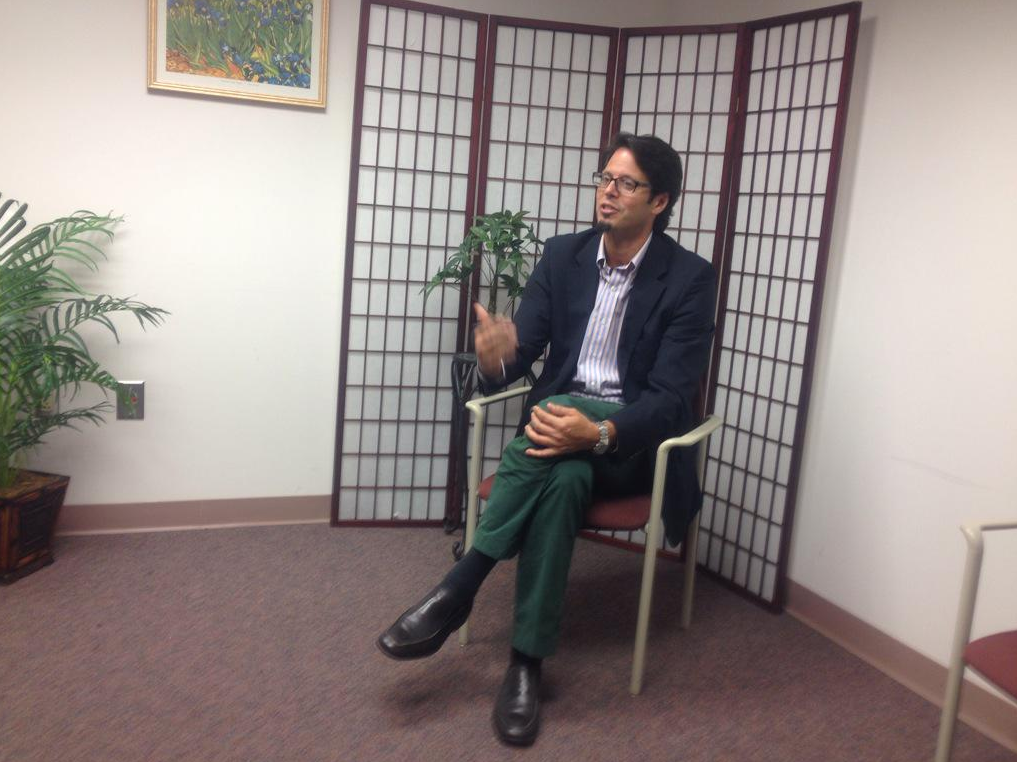
From Honduras, the country with the number one homicide rate in the world, a Country Representative for Catholic Relief Services, traveled to the United States, to better understand the relationship with college students and CRS.
Juan Sheenan, Catholic Relief Services representative for Honduras, has been in his position for six years. He came to both Villanova University and to Cabrini College to meet with the Refugees Seeking Safety executive board and to speak about his time in Central America.
“We can only do so much in these countries, we do need the support of our brothers and sisters in the states,” Juan Sheenan, CRS representative for Honduras, “I do thank you–sincerely from my heart.”
When speaking to Cabrini CRS Student Ambassadors, and members of the Refugees Seeking Safety simulation executive board, Sheenan admitted that he was amazed at the work Cabrini students are doing because when he was in college he just wanted to “get out.”
Something that Sheenan was most excited to see was Cabrini’s students participating in the Refugees Seeking Safety simulation.
“We’ve been working on it [the refugee simulation] since the fall semester and we’ve really put a lot of work into it,” Katie Briante, freshman executive board member on Refugees Seeking Safety team, said. “Since then we’ve been constantly trying to improve it and make it better.”
On Friday, April 10, Sheenan discussed refugee assistance reform and told stories about his experiences from his time spent in Honduras.
According to Sheenan, 50% of the people, often children, that attempt to make it through Mexico to get to the American border die. The journeys of the surviving percentage is not even guaranteed to be over if the courts get ahold of them and either deported, sent to a detention center or in the best case situation, sent to be reunified with their families.
The 50% that die often fall to the clenches of the cartels that are peppered throughout Mexico or find their death while riding on the tops of trains to the north.
“Many of the mothers say ‘I’d rather have this glimmer of hope, of them making it to the end, than seeing them be killed in front of me,’” Sheenan said. “So that’s just the reality of what’s going on.”
Sheenan’s words resonated with many members of the Refugees Seeking Safety team.
“Hearing his encounters with the young adults and their horrible stories were interesting yet heartbreaking to hear. It made the situation in Honduras more real for me and made me want to do more to help,” Marissa Roberto, freshman executive board member on the Refugees Seeking Safety team, said. “Having Juan Sheenan be so happy for the work we have done with our simulation was a great accomplishment for us.”
In a sea of compliments to the students and stories about the struggles refugees face to come to America, Sheenan was clear about what was most important: that is meeting with local representatives.
While Sheenan does admit that it is not an easy task, due to the fact that “this is a war not going on here–people don’t see what were describing,” but it is still a task that needs to be done.
“You are their boss–you’ve elected them. You have a right to talk to them about how this is working and get them to sign these bills,” Sheenan said. “We’re only going to get this immigration reform to work if the systems are there.”


